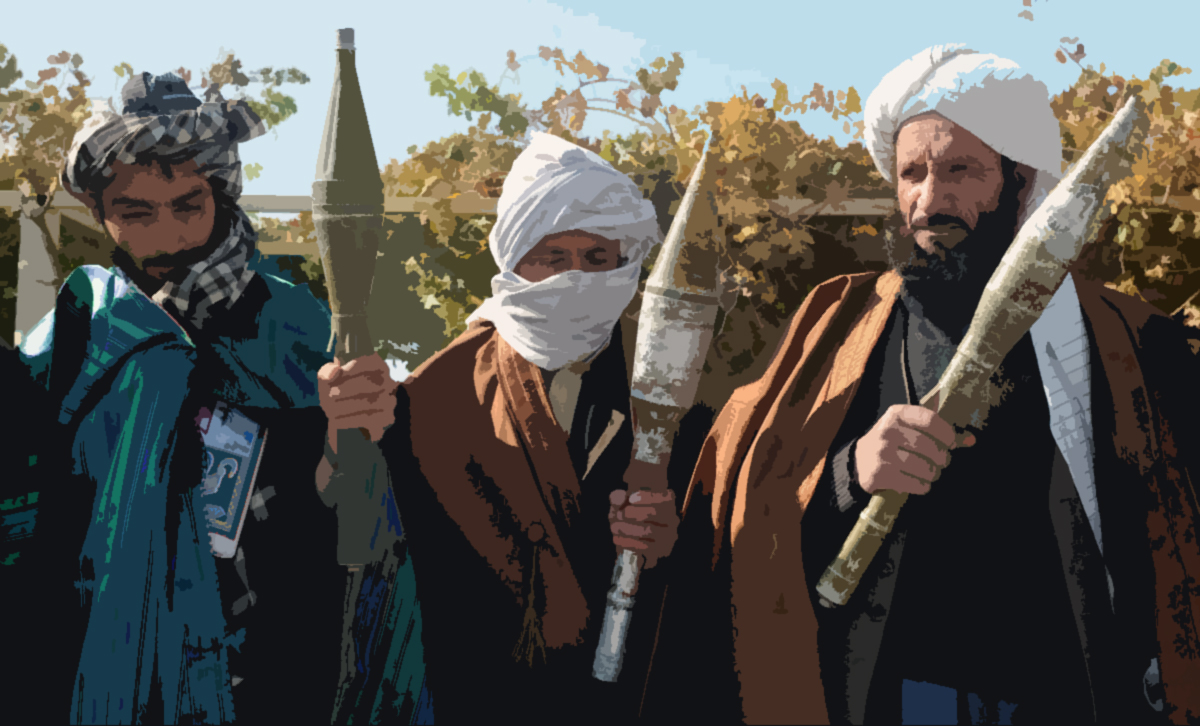
The incident is a stark reminder of how easy it is for anybody to sabotage the peace process between the government and the Taliban. It is also a timely warning to the doves in our security establishment to see and understand how difficult it would be for the civil administration with its limited resources to guarantee the safety of the general public after the army has withdrawn from these settled areas. The attack has not occurred in FATA, an insecure area, but in a settled district where the army claims to have established the writ of the state.
The targeted killing of a serving General Officer Commanding (GOC) is a big blow to the morale of troops engaged in fighting miscreants and factions of the Taliban. The operational activities of a GOC are always a closely guarded secret. The standard operating procedures (SOPs) require that the methods and means of travel are to be constantly reviewed and are subject to change even at the last moment.
It is however his non-operational commitments such as the inauguration of various schools, bridges and roads which are part of the rehabilitation and rebuilding process that necessitate the sharing of his schedule with others. Without the knowledge of the exact time and place of the GOC’s travel plans, the perpetrators of this crime could not have planted the fatal IED.
Now to the peace process. Should negotiating peace with the TTP be our favoured option? One questions the inability of Pakistan army to undertake a major pre-emptive operation against the TTP on the pretext that it can only carry out such an operation after a seal of approval from the politicians. And whether the actual way forward is the APC (All Parties Conference) to develop a consensus on negotiating with the Taliban.
Had this been taken as a serious matter of national security, then reviewing many dimensions and effects of this war would have taken many days of deliberation. Even the question and answer sessions should have taken many days considering that most party heads that attended the APC were for the first time exposed to the whys, hows and whens of this war on terror that the army had chosen to fight under a policy the guidelines of which originated from its own former chief Pervez Musharraf.
Unfortunately it is not the much-trumpeted consensus of Pakistan’s political elite that will have any substantial bearing on exercising control and sustaining any peace process with the TTP. The actual control and the direction that such a peace process will take in the future will instead have everything to do with the consensus amongst the various factions of the TTP, now fighting under their own separate agendas as well as leadership.
Whichever group that has carried out this latest target killing is not in favour of any peace process or its success. The truth is that this may not be an isolated group. There are many splinter groups that may not be under the central control of the TTP and who may not be interested in negotiating peace.
The tight spot that our security establishment finds itself in today is of its own making. Had the Taliban been deterred by an army willing to hit them hard and punish them for every loss they inflicted on it, they would have by now been sufficiently weakened. So far the army has continued to run after two rabbits and thus unable to catch none. The sacred doctrine of strategic depth that keeps its hands tied and prevents it from going all-out against all Taliban regardless of them being good or bad. Carrying out limited operations against selected targets thus hardly ever breaks the back of the militants despite huge deployment in Fata. The continuity of this military strategy has only allowed the status quo to prevail. With every tactical defeat and loss of face that the army suffers at the hands of the Taliban, its professional capability, credibility and competence is affected. In turn the Taliban demonstrate that they continue to exist as an unchallenged serious threat and force to be reckoned with.
THE WRITER, A RETIRED LIEUTENANT COLONEL, IS A RESEARCH SCHOLAR WHO IS DOING PHD IN CIVIL-MILITARY RELATIONS FROM KARACHI UNIVERSITY.
COMMENTS (16)
Comments are moderated and generally will be posted if they are on-topic and not abusive.
For more information, please see our Comments FAQ



1731655243-0/BeFunky-collage-(61)1731655243-0-165x106.webp)

1731666526-0/Express-Tribune-(9)1731666526-0-270x192.webp)
1731668520-0/Express-Tribune-(11)1731668520-0-270x192.webp)



1731656720-0/Copy-of-Untitled-(44)1731656720-0-270x192.webp)






@Sudha,
Yes, you are right on one account, a power vacuum is going to be created once troop withdrawal starts. But as the name suggests, it is a "power" vacuum- the desire for control and power once a more powerful force evacuates.
Lack of infrastructure does not necessarily cause a power struggle. There might be some corelation between the two but certainly no causation.
@Usman: We are having cheap Indian comments. ET cannot stop.
@Usman - Its not true that India has 6 lakh troops in Afghanistan. We dont even have enough to guard our own borders, from where could we spare troops for Afghanistan? So, thats poppycock. Leave that be. Pakistan should do whats best for the country and not whats best for anyone else. So, its upto you, as public, to decide whether you need to go with the "strategic depth" theory and allow terrorists, even "good" ones, to roam free, or ask your govts to take a decisive stance to root out terrorism in toto.
@Talksense - Which country is going to do anything for another country, if it doesnt "suit" it to do so? As @3rdRockFromTheSun said, its to ensure peace in those areas that will experience a power vacuum after troop withdrawal.
In the end, I hope good sense prevails in Pak and terrorism in all forms is eliminated. Peace in Pakistan can only mean peace in India and development of the sub-continent.
@TalkSense: China is also helping in Afghanistan. Both India and China have blocks for mineral mining. That is business. Learn to TalkSense.
@Usman : 600,000 Indian troops in Afg? Really?
@TalkSense : The agenda behind it is to provide infrastructure services to Afg, so that their population can expect a higher standard of living - a contented populace is less vulnerable to resorting to "extremism"; ergo the region remains peaceful; unlike the past!
But yeah, ignore the content by the author, which by the way is spot-on; and keep dreaming till you wake up one day to find out that the TTP have taken away even the most basic of your liberties - which is exactly what happened to Afg in the 90s.
Either our army is incompetent or unwilling to act... TTP and extremism need to be crushed with iron hands. Unfortunately, both political and army leadership don't have the vision and courage to act.
@Alann
So the "infrastructure" as you quote, is just out of goodwill on the part of the Indians,right? With nothing expected in return? No agenda behind it?
Yea I think that you are right, because after all, it is such an international norm for countries to regularly spend millions in a foreign country with no objective behind it.
You MUST! write a book on it, seriously!
@Feroz: A certain Mr Zahid, I am sure....where horses fly et cetera. Come on, Usman is not too far off, give him some credit, full marks for the conspiracy theory.
@Usman: Where do you get your information from, seriously ?
@Usman: "My question to the writer: Which one is more dangerous, 600,000 Indian troops in Afghan soil stationed permanently or several thousand TTP in FATA?"
How silly can most of you Pakistanis get? Care to ever submit a valid source for your claims? India has no armed forces in Afghanistan. India is only developing the infrastructure and providing healthcare/technical facilities to Afghanistan. Only members of NATO have armed forces stationed inside Afghanistan. Forget 6,00,000, show me a proof of just 60 Indian troops living inside Afghanistan.
But several thousand TTP has been able to kill 50,000 Pakistani citizens forced the political leadership to admit defeat.
@Usman: Indian troops in Afghanistan....?????Grow up kid....don't drag India into it.....you are free to pursue Strategic Depth....Afghans will deal with that.......
Leaders cross insurmountable odds to achieve the 'unthinkable'. The last real one that we had, left us 65 years back.
My question to the writer: Which one is more dangerous, 600,000 Indian troops in Afghan soil stationed permanently or several thousand TTP in FATA? .
That is the ultimate question facing our security establishment, at the moment, the threat from Indian troops deemed more dangerous, hence the need to keep strategic depth (it is not kept out of a hobby). . Can we deal with the TTP by allowing local tribes to work with the Army and take control of the area? Even if there's a remote chance of this, it should be pursued. The nation is not supporting all out war with TTP, the political leadership is not supporting it either. Why then, should the military act single-handedly on this matter? It's not the military's indecision that's keeping it from fighting, its the political leadership and the nation's (both blinded by hate mongering Mullahs). Please correct. . *Note to mods: Pls don't let this conversation degrade by allowing cheap Indian comments. Thanks.